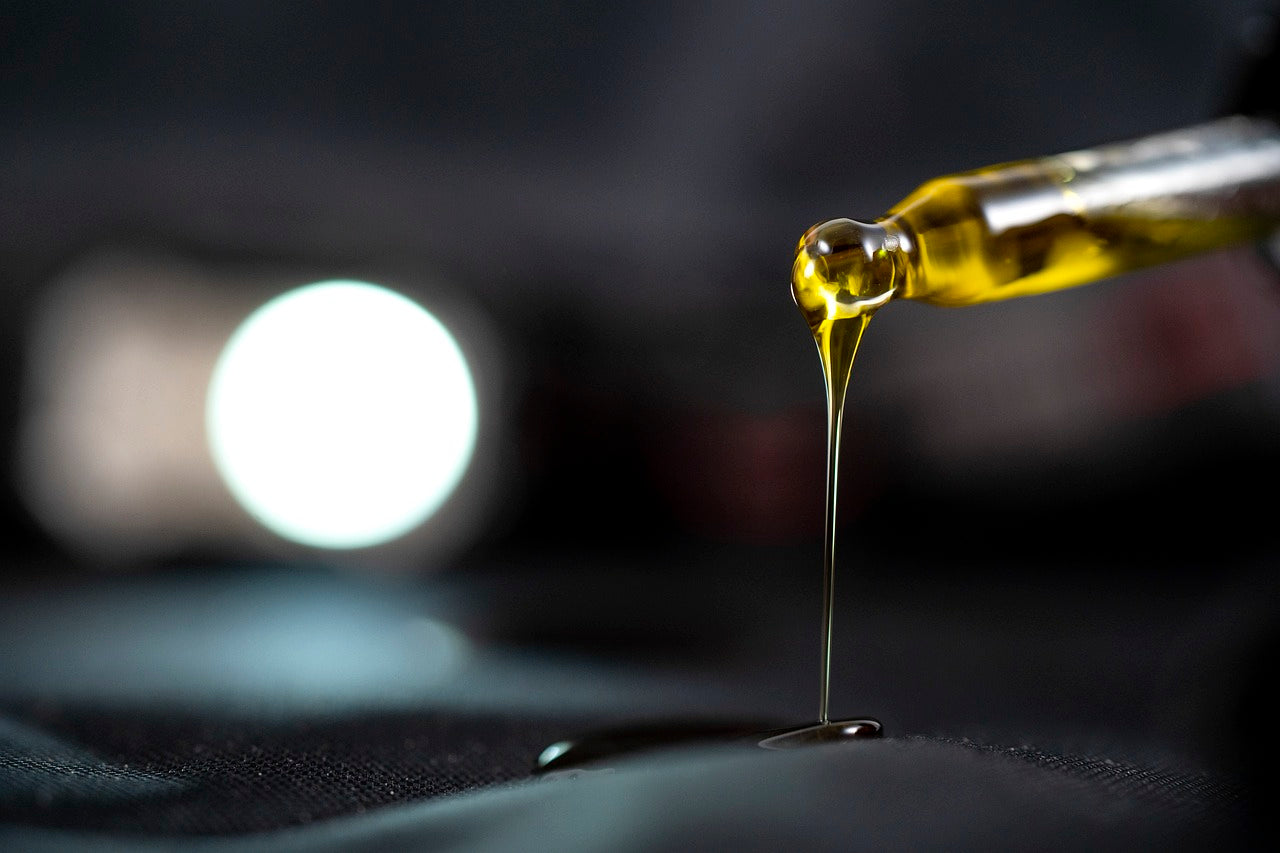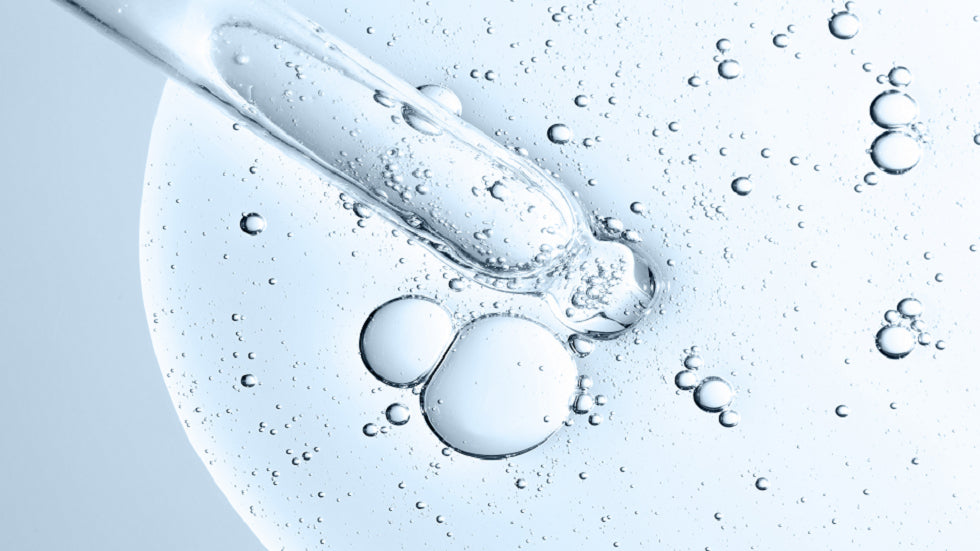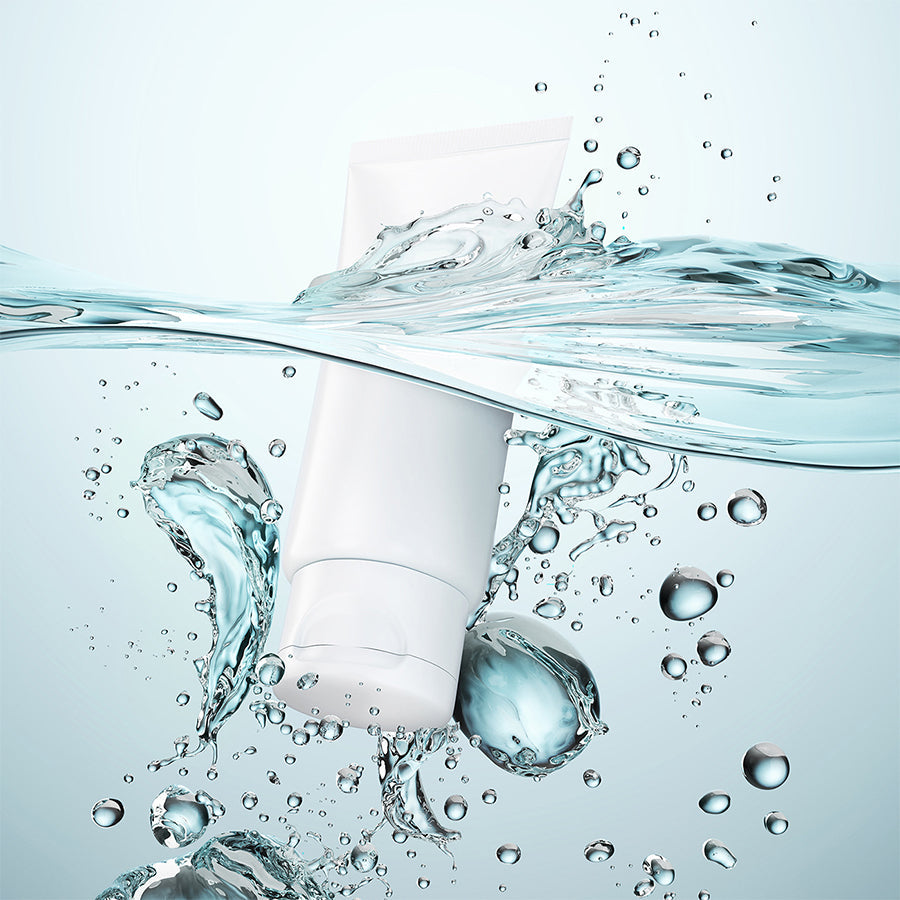If you’ve been reading the ingredient lists on your skincare products, you’ve probably come across squalane oil – a versatile and powerful ingredient known for its ability to hydrate, protect, and soothe the skin.
So, what is squalane? What are the key squalane oil benefits for the skin? How can you incorporate this ingredient into your skincare routine? And how do you choose the right squalane face oil or moisturizer?
Here are the answers.
What Is Squalane Oil?
To understand squalane (with an a), you must first understand another compound - squalene (with an e). They may sound the same, and they are related, but there's a clear difference between squalene and squalane.
Squalene is an oily substance produced by our skin’s sebaceous glands. It accounts for about 12% of the lipids (fats) that make up human sebum and plays an important role in moisturizing the skin. It’s what gives your skin that natural glow.
However, with age, the natural production of squalene slows down, and this causes the skin to become dry. To make up for the depleting levels of squalene in the skin, you might need to supplement it from external sources using topical skincare products.
While squalene can be extracted from other sources, it cannot be added to skincare products in its natural form. When exposed to oxygen, it can quickly become unstable. Hence, it must first be stabilized. This stabilized form of squalene is known as squalane.
Squalane has the look and feel of a lightweight oil, and it mimics our skin’s natural sebum – in other words, it is a skin-identical ingredient.
Where Does The Squalane Oil Used In Skincare Come From?
Like us, many animals and plants also produce squalene. Historically, it was extracted primarily from shark liver oil. This led to an unfortunate increase in shark poaching incidents.
Thankfully today, we’ve switched to more ethical lipid-rich plant sources. This includes olives, rice grain, sugarcane, grape seed, and amaranth. We, at BodyTree, use 100% plant-based squalane oil extracted from olives in our formulations.
Squalane Benefits For The Skin
This multitasking and well-tolerated ingredient addresses several skincare concerns. Some of the top squalane oil benefits include:
Squalane for skin hydration
Squalane is a hydration titan! As a skin-identical ingredient, it mimics the skin’s natural sebum and forms a protective layer that locks in the moisture. This keeps your skin from drying out through the day/ night.
Squalane for skin barrier health
Lipids, including squalene, are primary components of the skin’s natural barrier. If your skin’s natural squalene production is inadequate, using a squalane face oil or moisturizer can help fill in the gap and reinforce this barrier. This protects your skin from damage caused by pollution as well as environmental stressors like UV rays.
Squalane for acne-prone skin
Though it is termed as an ‘oil’, squalane oil is lightweight and non-greasy. A key squalane benefit for the skin is that it is non-comedogenic – it is easily absorbed into the skin and does not clog your pores to trigger an acne breakout.
If you have acne-prone skin, using a squalane face oil or cream is the best way to keep the skin hydrated without the risk of breakouts.
Squalane for skin sensitivity
Squalane oil is a skin-identical or bio-mimetic ingredient – something that is already present in your skin’ structure. Hence, when you apply a squalane moisturizer or a squalane facial oil, your skin is not likely to react to it. This makes it an ideal ingredient for people with sensitive skin.
Squalane for skin protection
Squalane oil is rich in antioxidants. This makes it capable of neutralizing the damage caused by free radicals. In turn, it helps reduce the oxidative damage caused by these aggressors to give you healthier skin. Further, the anti-inflammatory properties of Squalane oil help soothe redness and irritation.
Squalene for elasticity
Regular use of a squalane serum or face oil ensures your skin stays hydrated and supple. It also contributes to boosting collagen and elastin production. These proteins play an important role in allowing the skin to stretch and bounce back. Thus, your skin feels smoother and firmer.
Squalane for regulating sebum production
Dryness can push the skin to increase the production of sebum, making your skin prone to acne and breakouts. Regular use of squalane oil helps address this concern as it keeps the skin hydrated and regulates the production of sebum.
How To Incorporate Squalane Oil Into Your Skincare Routine?
To incorporate squalane into your skincare routine, start by looking for the right product. Typically, you will find it in the form of stand-alone face oils, face oil blends, serums, and creams.
Ideally, you should use a 100% plant-based squalane face oil or serum. BodyTree’s Squalane Elixir Face Oil is a great choice if you are looking to give your skin a hydration boost. This unscented, fast-absorbing, lightweight oil hydrates your skin, protects it, and makes it look firm and supple.
Squalane oil is a gentle ingredient and does not usually react to other skincare ingredients. You can use it as part of your morning and night skincare routine and along with other skincare products. However, it is best to avoid using it with strong acids.
Final Thoughts
Squalane is a versatile and powerful skincare ingredient that can help maintain your skin’s integrity and health. What’s more, there’s no risk of it triggering an acne breakout or causing any other discomfort. Start today, use it regularly, and experience the benefits for yourself.
FAQs
Is it okay to use Squalane every day?
Squalane is a gentle skincare ingredient. So, yes, you can use a squalane face oil or a squalane serum every day. In fact, it is only with regular use that you can experience its benefits.
Is Squalane better than hyaluronic acid?
Squalane and hyaluronic acid (HA) are both excellent hydrators, but they serve different functions in skin care. HA acts as a humectant drawing moisture to the skin, while squalane is an emollient that keeps this moisture from escaping. Unlike HA, squalane also has antioxidant properties that protect our skin from pollutants and toxins.
The great news is that these ingredients complement each other well, so you can incorporate both into your skincare routine. Together, they provide optimal hydration and moisture without making your skin look or feel greasy.
Can I use Squalane oil instead of moisturizer?
Yes, you can use squalane oil as a standalone moisturizer. It is an excellent emollient that improves hydration and reduces moisture loss. All you need to do is apply a few drops of the oil on your once or twice a day. You can also use it with your facial creams and moisturizers for extra hydration.
Is Squalane good for the skin?
Absolutely yes. It is a powerhouse ingredient that keeps your skin moisturized and supple without clogging your pores. Squalane oil also helps maintain a healthy skin barrier, fights the effects of free radicals and environmental stressors, and supports collagen and elastin production. Thus, it gives your skin a natural, healthy radiance.
Also Read



